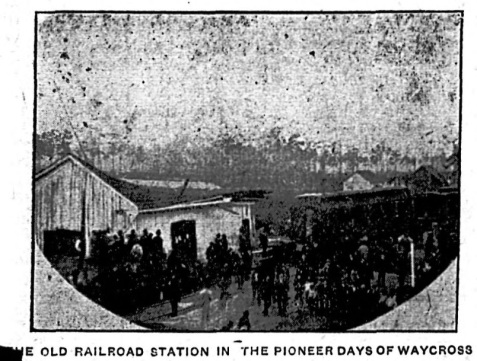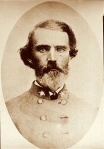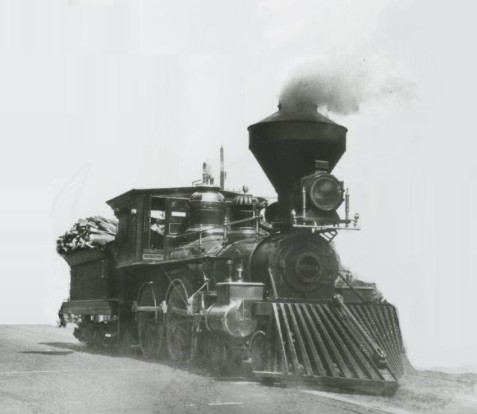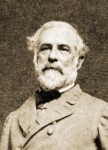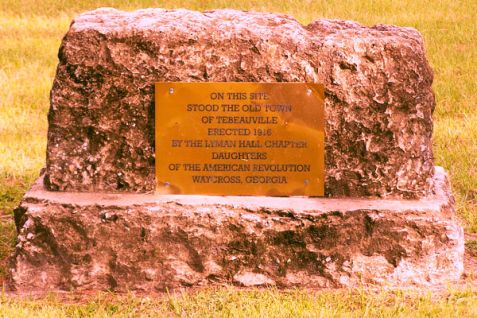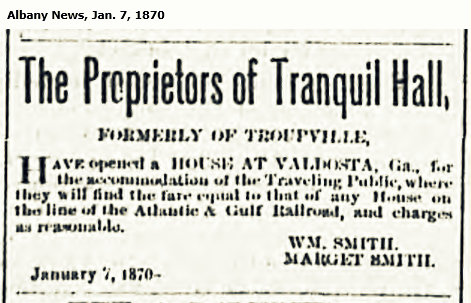
Richard Augustus Peeples (1829-1891)
Lowndes Immigration Society, 1867
Richard A. Peeples, a former Clerk of the Berrien County Courts, was among the prominent supporters of the Lowndes County Immigration Society, which formed to seek labor alternatives to employing recently emancipated African American laborers. Others in the Society included:
- Charles Henry Millhouse Howell, a planter with 2,200 acres in the 663 Militia District, the Valdosta District, on lots 36, 37, 57, 58, and 264 in the 11th Land District of Lowndes County, former owner of 17 enslaved people, in 1870 was employing and 13 freedmen and 5 other hands.
- Henry Burroughs “H.B.” Holliday, father of Doc Holliday, originally settled in 1864 in the vicinity of present day Bemiss, GA and later moved to Valdosta, served as a civilian representative for Freedmen’s Bureau of Lowndes County, in 1870 owned 980 acres in the 663 Georgia Militia District (GMD) on lots 146 and 176 in the 11th Land District of Lowndes County, employed one hand and no freedmen, elected Mayor of Valdosta in 1872 and again in 1876.
- Daniel J. Jones aka Daniel Inman Jones, during the war received discharge from the Confederate states army by sending a substitute to fight in his place, in 1870 a planter with 3,600 acres of land in the 662 GMD on lots 126, 127, 128, 155, 157, 168, and 180 in the 16th Land District of Lowndes County, GA, employed 31 freedmen and 15 additional hands
- James Thompson Beville, former captain of the Valdosta Guards, 50th Georgia Regiment, in 1870 owned 2,045 acres in the 662 GMD on lots 62, 63, 64, 75, and 76 of the 16th Land District of Lowndes County, employed 9 freedmen and 11 other hands, later moved to California and lived to the age of 92.
- David Peter Gibson, appeared on the 1864 Georgia Census of men who had not enlisted in Confederate service, in 1870 owned 1000 acres in the 662 GMD on lots 17 and 18 in the 16th land district and lot 161 in the 11th land district of Lowndes County, GA, employed one freedman and 4 other hands, moved about 1880 to San Sebastian, FL where he organized the first attempt to dig a cut to form Sebastian Inlet
- James A. Dasher, Valdosta businessman who sold the Trustees of the School for Colored Children a 1/2-acre lot south of the railroad tracks as the site for a new school, farmed 500 acres in the 663 Militia District on lots 77 and 78 in the 11th Land District of Lowndes County, in 1870 was employing 2 hands.
- John Richard Stapler, owner of the 1,960-acre Alcyone Plantation, Hamilton County, FL, in 1860 owned 69 enslaved people and 14 “slave houses”, one of the commissioners who chose the site of Valdosta, later acclaimed as the breeder of pineywoods cattle known as the Stapler Guinea Cow.
- Archibald Averett, farmed 880 acres in the 662 Georgia Militia District on lots 119 and 159 in the 16th land district of Lowndes County, formerly owned 25 enslaved people, in 1870 was employing 7 freedmen and 9 other hands.
- Philip Coleman Pendleton, editor of the South Georgia Watchman, owned 400 acres in the 663 GMD on Lot 106 in the 11th Land District of Lowndes County, employed no hands. Pendleton had originated from Sandersville, GA where he was co-owner of the Central Georgian newspaper, with O. C. Pope, Sr. In 1857 he moved to Station No. 9 on the Atlantic & Gulf Railroad, which he named Tebeauville. During the Civil War, Pendleton had served with the 50th Georgia Regiment. He afterward located in Valdosta, GA and in 1867 established the South Georgia Times newspaper there.
- Colonel Sumner W. Baker, a lawyer whose office was on Patterson Street, Valdosta, GA
- Colonel William R. Manning, a large landowner and slaveholder in Coffee County prior to the Civil War, commanded the 50th Georgia Volunteer Infantry Regiment in the Confederate States Army, in 1870 owned 1,540 acres in the 663 Georgia Militia District on lots 153, 154, 169, and 170 in the 11th Land District of Lowndes County, employed 3 freedmen and 3 other hands.
- Archibald McLeod
- William Zeigler, wealthy planter of Valdosta and former owner of 46 enslaved people
Following the end of the Civil War and abolition of slavery, Southern planters looked for ways of maintaining the economy of their slave-based cotton plantations. In lieu of slavery, cotton growers desired a system to bind Freedmen to plantations and farms and to compel them to work under conditions deemed intolerable to white men. With contract terms to ensure profitability for the landowners, the risk was left to the Freedmen that their back-breaking labor would even pay enough to feed their families.
A long article in the Milledgeville Southern Recorder, April 10, 1866, edition laid out the philosophy of the southern white planters, asserting that it had only been through their ingenuity that the labor of African Americans had ever been made profitable. The position of white planters was that slavery had been unprofitable in the early years of the United States; “From 1790 to 1800 the people of the southern states were seriously discussing the abolition of slavery on account of the unprofitableness of that description of labor.”
In this southern post-war narrative, white men had devised the extensive cultivation of cotton, and thus enabled enslaved blacks to work profitably, a condition they could not achieve on their own account since “negroes lacked sufficient judgement or intelligence to cultivate cotton successfully, without continual supervision.” In the white southern view, slave-based cotton production had propelled the economic growth of the country, yet the North had caused Secession and the Civil War by unfairly imposing tariffs on the cotton production of the southern states. “Convinced that the high tarriffites of the North would never be satisfied till they had reduced the Southern States to the condition of tributary provinces, paying into their coffers the whole profits of their labor, they seceded, a war ensued, which has ended in their conquest and the abolition of slavery.”
Southern planters held that African Americans and former enslaved peoples were unfit for anything but agricultural work, but readily admitted profitable cotton production required highly skilled labor: “Picking requires educated labor as much as spinning and weaving the fabric, and the training must commence in childhood. So well established was this fact, that a South Carolina or Georgia [enslaved] negro would always command a higher price than one from Tennessee.”
The Milledgeville Southern Recorder article calculated a highly skilled freedman could pick two to three times as much cotton as any white laborer. Furthermore, the article asserted white men were unsuited for cotton cultivation, which was year-round, back-breaking work under intolerable conditions.
“It requires the constant labor of all the hands from daylight till dark, when the picking season commences to secure the crop. In a half hour after the hands enter the field they are as thoroughly wet from head to foot by the dew as if they had been plunged in a river. In two or three hours the scorching rays of an August sun are poured upon their bent backs with an intensity of heat of which no Northerner has any conception yet the vast fields are white before them and they must toil on if they would secure the fruits of their previous labors. The malarious exhalations of the early morning, the saturation of the clothes with dew, and the subsequent exposure to the direct rays of the noon tide sun would prostrate any white man on a bed of sickness, of serious, probably fatal sickness in a week.”
“On the best cotton lands from which the millions of bales were draw [by forced labor of enslaved people]…the malaria is so dead[ly] that no [white] man can live there constantly.”
“After a killing frost, (say from the middle of November till Christmas,)…The pods become hard, presenting curved spines at the open end, which scratch the hands; besides it is cold work in the early morning.”
It was said that in some of the largest cotton producing counties in Mississippi and Louisiana, the only white residents were the overseers who suffered as high as 60 percent to 75 percent mortality rate, even though “they perform no labor and avoid exposure to the morning dews and the heat of the noon-tide sun.”
Can the labor of the freedmen be secured thus continuously and certainly, as the conduct of a cotton plantation profitably absolutely requires; Every man who understands negro character, especially every practical planter, will unhesitatingly answer no. Until some method can be devised to compel freedmen to enter into contracts of labor for terms of years, and to fulfil their contracts faithfully, till they become in some form or other fixtures to the soil, more or less permanent, their profitable employment on cotton plantations is impossible.
With the circumstances imposed by Reconstruction and failed attempts of white planters to regulate black laborers with the threat of “involuntary servitude,” Lowndes County planters set upon a plan to recruit immigrant laborers from Europe. Among the prominent residents of this section who supported the Lowndes County Immigration Society was Richard Augustus Peeples, Clerk of the Berrien Courts.
Savannah Daily News and Herald
September 16, 1867
Labor Supply and Immigration
The subjoined proceedings of a meeting of a large number of the most intelligent and respectable citizens of Lowndes county, in this State, will be read with interest. [Note: Freedmen were not citizens until the passage of the 14th Amendment, which was ratified in Georgia July 21, 1868] We have long been persuaded that some plan ought to be adopted to secure the amount of efficient and reliable laborers which our necessities demand, in order that we may successfully cultivate our lands, increase their yield and fertility, and regain the means and the wealth necessary to repair the losses our State has sustained, and reach, it is to be hoped, a higher state of prosperity than we have ever yet realized. The change in our labor system was sudden and violent, and it is not to be supposed that the freed laborer will settle down at once and become a systematic and reliable farm worker. Thus far a very large number, if not a majority of the negroes seems to be rather depredating and nomadic – uncertain and unsettled – indeed, has not made up his mind yet as to the necessity and utility of a permanent home and continuous application to labor. This should, and will, probably, change in course of time, when his interest come to be more clearly understood.
Now, in spite of all malicious slanders to the contrary, the Southern people are disposed to deal kindly with the freedmen, and give them a fair chance to earn their living if they can be depended upon for constant and regular labor, so that the planters’ calculation in pitching his crop shall be in no danger of failing, as been frequently the case in all parts of the South for the want of the requisite work and proper attention. And here is the real difficulty of the present position of the labor supply question.
We have urged this matter repeatedly upon the attention of the people of Georgia. There is a unquestionably great need for an increased supply of laborers and industrious cultivators and tenants of our lands. Some plan of encouraging immigration from Europe or the Northern States of steady laborers and agriculturalists ought to be put in operation, and it is important that it should be entered upon at once. If we had agricultural societies formed in the different counties of the State, perhaps those bodies might be the appropriate channels through which information might be diffused throughout the different countries of the Old World. Productive lands, situated in all parts of the State, can be purchased at very reasonable rates; but the difficulty is, there is no systematic method for making this fact known to foreigners who are anxious to buy, or for assisting emigrants in making selections. The desired object may be accomplished by one of three methods: 1st by appointing a commission to go abroad and induce immigrants to come to the State; 2d, by incorporating a company to promote the objects on the plan of land subscriptions or donations; 3d, by establishing a bureau, under the direction of the Governor, to take control over the matter.
Our friends in the county named have adopted the first.
Major Pendleton, a gentleman remarkable for his intelligence and tenacity of purpose in obedience to the requirement of the Valdosta Immigration Society, expect to leave for Europe about the 25th inst. Letters addressed to him at Valdosta up to the 20th, to Savannah up to the 25th, to New York up to the 30th, (in care of Wm. Bryce & Co.) will receive prompt attention.
The true condition of the labor question in the South-the value of negro labor-the reliance to be placed upon them as laborers-may be fairly inferred from the action of the planters of Lowndes, among whom are many of the most sensible, practical and far-seeing in south Georgia.
We invite attention to the movement. It is a significant one, in which the laborer now employed is perhaps most interested.
Whether he will see the necessity laid upon him, or heed the admonition of passing events, remains to be seen.
Meeting of the Valdosta Immigration Society.
{From the Valdosta Times}
Valdosta, Sept. 12, 1867
At a meeting of the citizens of Lowndes and Echols counties, held at this place today, the meeting was organized by calling Col W. H. Manning to the Chair and H. B. Holliday as Secretary. A committee of eleven was appointed to suggest business for the meeting, consisting of the following persons: Capt. J. R. Stapler, A. Averett, Wm. Roberts, J. W. Harrell, A. McLeod, D. P. Gibson, C. H. M. Howell, H.M. Coachman, J. C. Wisenbaker, W. Zeigler, Col. R. A. Peeples, and Maj. P. C. Pendleton. While the committee was out the meeting was addressed by Col. S. W. Baker.
Our space does not admit of more than an abstract of the proceedings. The committee charged with the duty of suggesting formally, subject matter for the action of the meeting, reported in substance, that, additional labor upon our farms and other industrial pursuits was an absolute and pressing necessity, that could no longer be ignored without great detriment to the country. They report farther: That, from information in their possession, it is entirely practicable to procure emigrant labor of the kind wanted, and that they can be best obtained by sending an agent direct to Europe from among themselves to obtain them.
That this labor can be had at a cost advance of probably less than $25 per head to be returned in the labor of the immigrant. And further that it is entirely practicable to obtain the labor required for the next crop.
These were the views of the committee in brief, and when presented in form, received the endorsement of the meeting.
A committee consisting of Capt. J. R. Stapler, Capt. J. T. Bevil and J. A. Dasher, Sr., was appointed to select an Agent to go to Europe for laborers. They selected Major P. O. Pendleton. The selection met the endorsement of the meeting, arranging for compensation, &c.
He was instructed to contract with laborers for two or three years if in his opinion practicable and to allow a minster of the Gospel of the faith of the emigrant and also a brewer to accompany them if desired by them. Each subscriber was required to give a descriptive list of the number and kind of laborers wanted, and the Agent authorized to pay as high as $15 per month for labor, the laborer supporting himself.
It was the expressed and emphatic opinion of the meeting that no planter ought to employ a freedman who has been discharged by his employer for misconduct, but that the freedman should have a recommendation from his former employer.
On motion, a committee of ten was appointed to act as a Finance and Executive Committee. The following is the committee appointed by the Chair:
J. R. Stapler
J. W. Harrell
Jas. A Dasher, Sr.,
D. P. Gibson
J. T. Bevil
D. J. Jones
A. Averett
C. H. M. Howell
J. H. Tillman,
Executive Committee
After which the meeting adjourned to meet on next Thursday, the 19th, at which time a further report may be expected from the Agent who has been instructed to visit Savannah to obtain information and in furtherance of the views of the meeting.
All interested in this and adjoining counties are requested to unite with the meeting on that day.

Philip Coleman Pendleton, agent for the Lowndes County Immigration Society
The long journey of Major Philip Coleman Pendleton to Scotland in late 1867 to recruit Scottish immigrants to settle at Valdosta, GA, and work the cotton has been chronicled by his second great granddaughter, Catherine Pendleton in the Pendleton Genealogy Post.
Major Pendleton probably departed Valdosta via the Atlantic & Gulf Railroad traveling approximately 170 miles to the port at Savannah, GA. General Levi J. Knight, of Ray City, GA had been one of the original board members of the Atlantic & Gulf Railroad.
At 61 miles from Valdosta the Atlantic & Gulf RR passed through the Tebeauville station, now Waycross, GA. Pendleton himself had founded the community of Tebeauville, settling his family and others of the Pendleton family connection there in 1857. Originally, “The station was to be named Pendleton but Mr. Pendleton requested the station be named Tebeauville after his father-in-law, Frederic Edmund Tebeau of Savannah…Tebeauville had been the ninth station to be constructed on the Atlantic & Gulf RR… To this day many old timers refer to the section of [Waycross] where the Tebeauville station was located as “Old Nine”. Pendleton had come from Sandersville, GA where he was co-owner of the Central Georgian newspaper, with O. C. Pope, Sr. During the Civil War, Pendleton had served with the 50th Georgia Regiment. He afterward located in Valdosta, GA and in 1867 established the South Georgia Times there.
At 111 miles from Valdosta, the train passed Johnston Station, known to the old-timers as “Four and a Half,” and now known as Ludowici, GA. Johnston Station had been the home of Benjamin Thomas Allen in 1864; his father was likely working as section master for the railroad. By the time of Pendleton’s travels, the Allens had moved to Nashville, GA. By 1870 the family lived in Valdosta where B. T. Allen would be hired by Pendleton to work as a typesetter.
Pendleton arrived in Savannah, GA on October 18th, 1867.
Milledgeville Federal Union
October 22, 1867
Lowndes County Immigration Society.
Major P. C. Pendleton, Agent of the Lowndes Immigration Society, passed through Savannah on the 18th inst., on his way to Europe for the purpose of procuring Immigrants to this State under the auspices of that Association. The Association with which he is connected have authorized him to offer the most liberal inducements to emigrants from the old world to settle in Southern Georgia, where a rich productive soil and healthful climate invite the husbandman, and where the thrifty industrious laborer will find a generous welcome.
In Savannah, Major Pendleton stayed at the Marshall House, 123 East Broughton Street. The hotel had served as a Union hospital during the final months of the Civil War. It was a favorite of visitors from Berrien before and after the war. B.P. Jones, founder of the Ray City Bank, stayed here in January 1870. Marshall House still stands in Savannah and remains open for guests.

Marshall House, Savannah, GA, circa 1867. Philip Coleman Pendleton stayed here October 18-31, 1867, enroute to Scotland seeking immigrants to work Lowndes County, GA cotton plantations.
The Savannah Daily News and Herald
October 21, 1867
Major Pendleton will, we understand, visit Scotland and Ireland, and will go prepared to give all the information needed and to furnish to those desiring to come to Georgia, such aid and guarantees as will be satisfactory. We trust that he may be eminently successful, and that his mission will result in opening the way for thousands of industrious and thrifty families, who may desire to change the hard terms of the tenant system of the old country, for one more liberal and lucrative in the New World, which promises far better prospects to themselves and their posterity.
After a two-week stopover in Savannah, Major Pendleton traveled to New York aboard the SS Herman Livingston
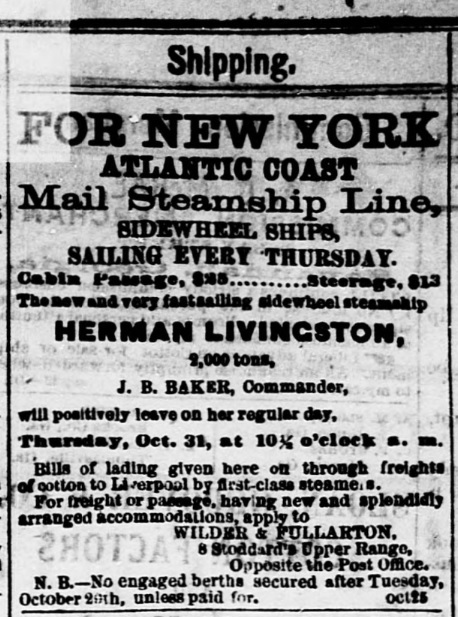
Advertisement for the steamship Herman Livingston, departing from Savannah, GA

SS Herman Livingston made the regular run between Savannah, GA and New York
The first-class sidewheel steamship Herman Livingston sailed for Baker, NY at 10:30am on November 1, 1867, with “P C Peadleton” and 19 other cabin passengers, four passengers in steerage, 1,416 bales cotton, 75 barrels of flour, 60 barrels of fruit, 2 bales deer skins, and 27 packages merchandise. On November 3, 1867, the SS Herman Livingston arrived in New York, where through passage to Liverpool was available.
It appears Major Pendleton reached Scotland by December 4, 1867, or perhaps he was able to arrange his recruiting campaign in advance of his arrival. Pendleton placed advertisements for workers interested in immigration to South Georgia in the Glasgow Herald.

December 4, 1867 advertisement in the Glasgow Herald placed by Major Philip Coleman Pendleton, agent for the Lowndes Immigration Society.
Glasgow Herald
December 4, 1867
Important To Mechanics, Farm Labourers, Domestic Servants, &c.
Emigration to Georgia, Southern States of America
Wanted, a number of Agricultural Labourers, also a few Blacksmiths and Cartwrights of experience, to settle in Georgia. The country, although in a transition state, is under good government, life and property being as secure as in this country. The climate is pleasant and healthy; provisions moderate in price, and certain soon to be lower. There are a number of Scotch settlers already in the district.
The following are some of the further advantages which Emigrants may rely on:
- Wages nearly double those given in this country.
- Shorter working hours, with additional payment for extra time.
- A commodious dwelling house, with a piece of ground and sufficient time to cultivate it.
- Expenses of passage out defrayed, or assisted in same, and to be returned by instalments from their earnings until paid.
To working men of industrious habits, and especially to those with large families, this will be found an excellent opportunity of bettering their position in life, as land is cheap, and every facility and encouragement will be given for their acquiring land out of their earnings.
For general information, applicants will please apply immediately to James McLeish & Co., 48 St. Enoch Square, who will supply all particulars.
P. C. PENDLETON, of Georgia,
Representative of the Association in Scotland.
BANKERS.
The Union Bank of Scotland, Edinburgh.
Messrs, Baring Brothers, London.
Glasgow, Dec. 2, 1867
On December 8, 1867, Major Pendleton wrote home from Edinburgh, Scotland. His letter home from that location included the following:
Edinburgh, Scot., Dec. 8, 1867
…Not a word from home yet. I wrote from Savannah and New York how letters should be addressed to me…Whether the fault may be John Bull’s P. master or Brother Jonathan’s, or that of misdirection, I cannot say…The work given me to do seemed to me so important that I fain would try it, in the hope of future good to those who sent me and to myself and mine. I trust I may be able to get through with it and see home once more.
Arriving in London, Major Pendleton wrote home on December 21, 1867
London, Dec. 21, 1867
I have been to Scotland, made all the arrangements for emigrants, but no money yet has followed me. I am much distressed about it, but I hope I may soon be relieved, be able to do what I came to do, and be speeded back to you…I left a heavy burden in the paper, but I thought I was doing the right thing to come on this mission…The public sense of Great Britain has been very much shocked by the acts of the Fenians. Irish-Americans are looked upon with marked suspicion…I have had one of my fits of dyspepsia, though I have been constantly going, ever at work. The best medicine for me now would be for me to be placed in funds to take out the emigrants so ready to go…I have not gone about much. Take a short walk up and down the Strand for a little air and exercise. When I first came here I visited two or three points of historical interest. But my mind has been too much occupied with what I came to do, to feel interest in such things…When I have a moment from business to think of home, I think of the trials and labor you have to undergo. How I long to be home again with you, but I must go through the work I came to do if means be sent men and I am spared. May a kind Providence shield you all and bring me safely back to you! My mind has been on such a strain, since our unhappy war began – since our defeat – since this present enterprise- that I feel quite anxious for an opportunity for rest. Don’t know if you ought to expect me before the 15th of February if the money comes – if not, sooner it may be…
He checked into the Charing Cross Hotel. On December 22, 1867, his letters from there included the following:
London, Charing Cross Hotel, Dec. 22, 1867
…In perplexity of mind about many things connected with my mission…I have not been able to write much for paper, It is a hard task, with so much to do, to think of in other matters…No money yet. Have telegraphed and am waiting reply.

London Charing Cross Railway Station and Hotel. The hotel, built in 1865 is at the geographic center of London. Major Philip C. Pendleton, of Valdosta, GA stayed here in December 1867 while on a mission for the Lowndes County Immigration Society to recruit Scottish immigrants to south Georgia, USA
Major Pendleton’s efforts at recruiting were effective. Hundreds of Scots were eager to make the Atlantic crossing for the opportunity to work in south Georgia. But the new year came and the Lowndes County Immigration Society couldn’t raise the promised money to pay for the voyage; Pendleton was forced to abandon the effort and return home alone. Pendleton sailed from Glasgow, Scotland, on the iron steamship United Kingdom.

Steamship United Kingdom
Major Pendleton arrived in New York on January 27, 1868. The following afternoon at the foot of Wall Street on the East River at Pier 16, he boarded the steamship Cleopatra bound for Savannah, along with Col. William Tappan Thompson, Associate Editor of the Savannah News and Herald, James Roddy Sneed, Editor of the Macon Georgia Weekly Telegraph, 21 other cabin passengers and 14 passengers in steerage.
The SS Cleopatra arrived in Savannah, GA on January 31, 1868.
The Macon Georgia Weekly Telegraph
February 7, 1868
The Foreign Labor Question – Among our fellow passengers by steamer from New York, a few days ago was our friend and contemporary, Major P.C. Pendleton, who has just returned from Scotland, where he had spent several months in securing field laborers for planters in Brooks and adjoining counties in Southern Georgia. He informed us that he found no difficulty in engaging the full number required as an experiment, viz. five hundred; but, unfortunately, his mission was brought to a sudden and unhappy conclusion. When everything was ready and he was about to collect together his laborers in daily expectation of a remittance to defray their expenses across the Atlantic, he received a dispatch from his principals, announcing their utter inability, from the unproductiveness of the year’s labor, to furnish any portion of the money required, and requesting his immediate return. So much for the fall in prices and the oppressive taxation of the Government.
Major Pendleton informed us that any number of sober, energetic and skillful farmers could be procured in Scotland at reasonable rates, and that they are even anxious to come to the South and aid us in building up our exhausted country. As the Southern people are powerless, and the Government is in the humor of bounties, where could it better direct its appropriations than in filling up the country with just such a population. Our idle naval marine might be well and profitably employed to this end.
In early February Pendleton reached home again. A final account of the mission to secure European laborers was published in the Cuthbert Appeal.
The Cuthbert Appeal
February 13, 1868
Home Again
After about three months’ absence in Great Britain, in obedience to the wishes of the Lowndes County Immigration Society, for the purpose of obtaining emigrants for this section of Georgia, we are, by the good Providence of God, “home again.” It is painful to have to say that the enterprise has been a failure. This failure was not because emigrants could not be obtained and brought cheaply, but because of the depressed condition of affairs that arose soon after our departure, owing to the low price of cotton and the increasing political troubles in reality and in prospect. The uncertainties arising therefrom, the want of means to carry to successful conclusion the well intended objects of the Association, was the alone cause of the failure.
The number of emigrants desired could have been had in Scotland, with out difficulty, on the plan we were instructed to propose. Numerous applications wore made to be allowed to come under this plan of the society. Indeed, more than the means expected to be used, to aid their transshipment. – The failure is much to be regretted every way. First, because of the value of these labors to our planters and to the country, and second, because promises were held out to those who had consented to come in the way of assistance, (“holding the word of promise to the ear, but breaking it to the sense,”), thereby possibly placing in discredit any future effort that may be made by the South in the same quarter.
It is beyond all doubt that the Scotch [sic] laborer is, If not the superior, the equal of the laboring population of any part of the globe. They are industrious, thrifty and painstaking in farm duties, to an extent surpassing anything we know here among the laboring classes. They are very poor, and almost always must remain so, under the system there. A little help given them, and the assurance of homes and work to do, would induce a very large emigration. There were well nigh a thousand applications to the two agencies established in Edinburgh and Glasgow, either by letter or personally, all eager to come; some of them promising to help themselves in part, if they should be accepted; some to pay their way; being allowed to come on the cheaper terms on which a number could be brought, with the assurances of work upon arrival here.
We went there well endorsed, and credit and credit and confidence at once were given to our statements. It may well be adjudged that the failure to respond here was a painful disappointment to them as it was to us.
Thus much briefly, until the society shall have had a meeting and speak for themselves after which information more in detail may be given.
Ξ










